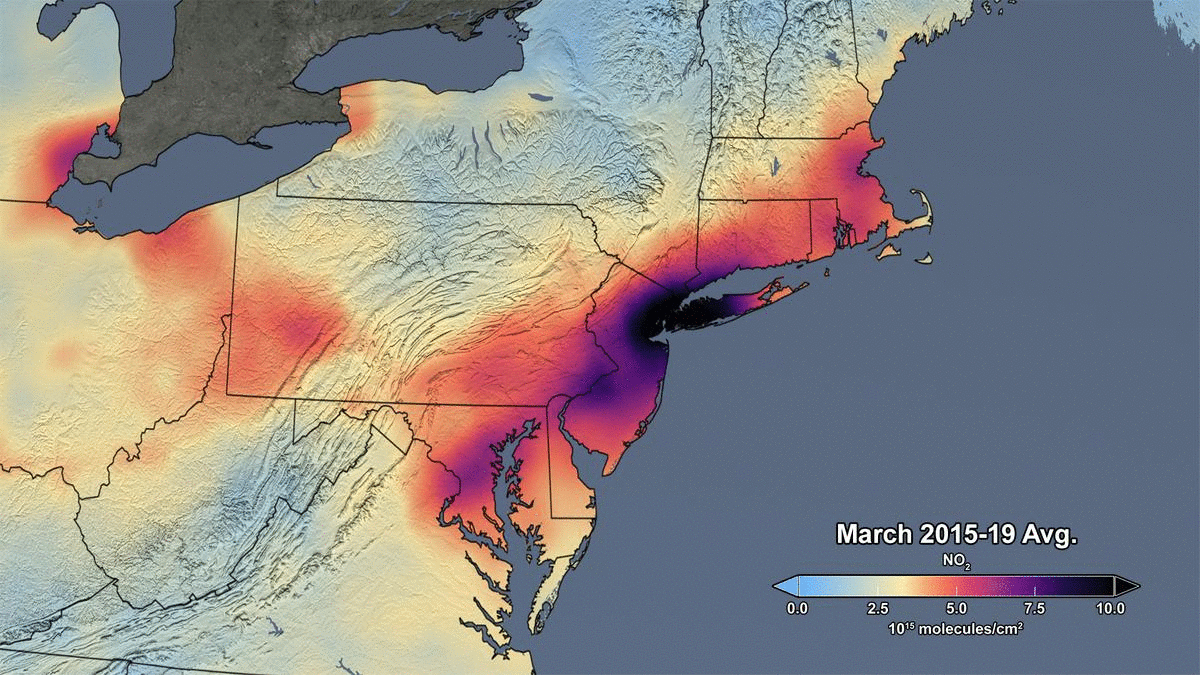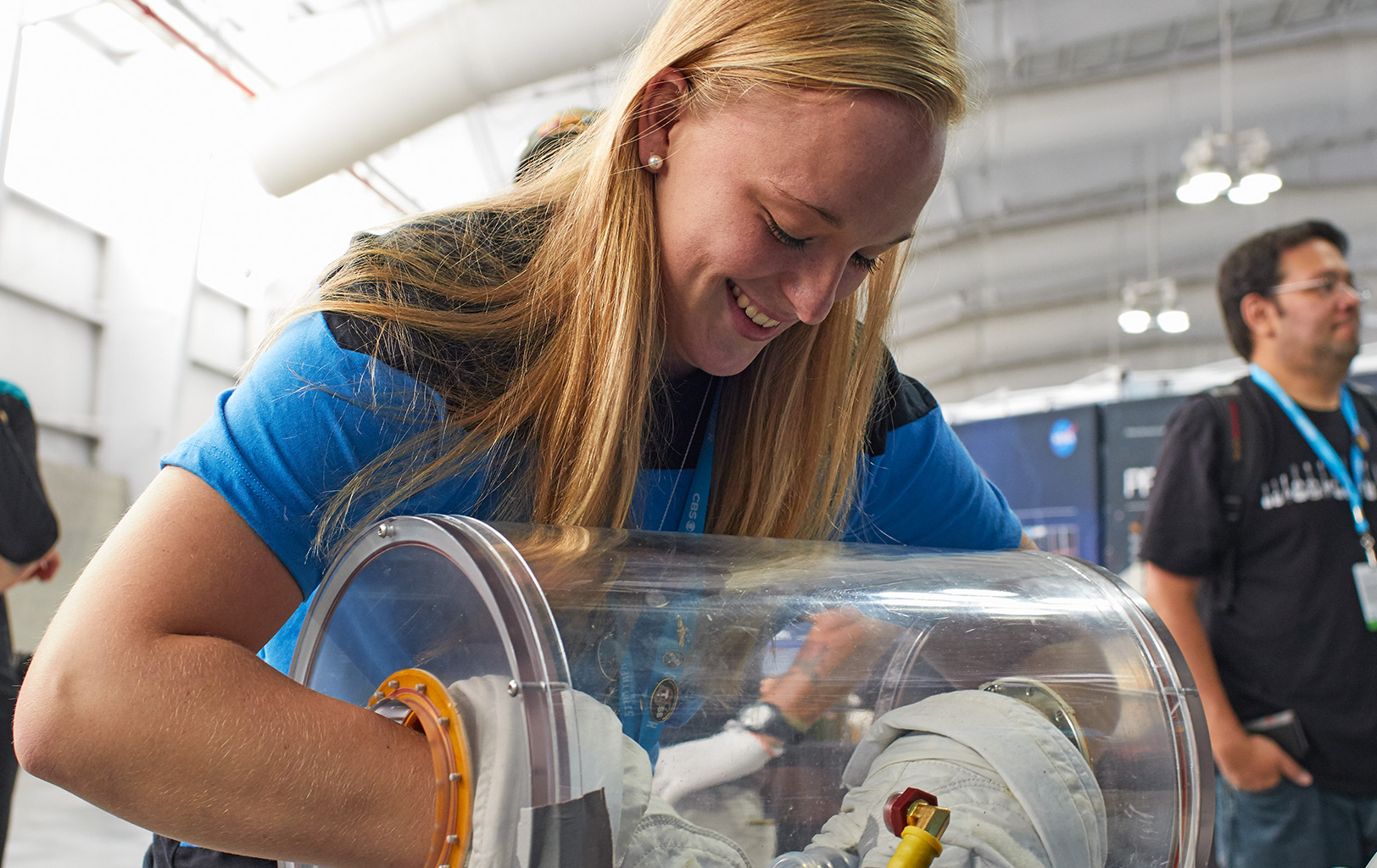NASA satellite sees air pollution drop over northeastern US amid coronavirus outbreak

NASA satellite data revealed significant reductions in air pollution over major metropolitan areas of the Northeast United States as people reduce travel during the pandemic spread by the new coronavirus.
Many states across the U.S. have implemented lockdowns and shelter-in-place orders in response to the spread of COVID-19, the disease caused by the coronavirus. Data from the Ozone Monitoring Instrument (OMI) on NASA's Aura satellite shows a substantial drop in atmospheric nitrogen dioxide, a harmful substance emitted from burning fossil fuels for transportation and electricity generation, according to a statement from NASA.
Related: Shutdowns from coronavirus create blue skies in California
NASA shared satellite views comparing the typical nitrogen dioxide concentration, represented by averaging March data between 2015 and 2019, to emissions recorded in March 2020. The data shows recent nitrogen dioxide levels are down about 30% over major metropolitan areas including Washington, DC, New York City, Philadelphia and Boston, according to the statement.
The data from NASA's Aura satellite serves as a proxy for nitrogen dioxide emission levels at Earth's surface, but natural variations in weather can also cause changes in pollution in the atmosphere, which means that recent changes in nitrogen dioxide levels may be in part due to reduced emissions and in part due to natural weather variations, according to the statement.
"Though variations in weather from year to year cause variations in the monthly means for individual years, March 2020 shows the lowest monthly atmospheric nitrogen dioxide levels of any March during the OMI data record, which spans 2005 to the present," according to the NASA statement.
Similar reductions in air pollution have also been observed in other regions of the world impacted by coronavirus, including Italy and China.
Get the Space.com Newsletter
Breaking space news, the latest updates on rocket launches, skywatching events and more!
- Dramatic effect of coronavirus lockdowns seen from space
- NASA center in California issues mandatory work-from-home order after employee tests positive for coronavirus
- Coronavirus prevention measures take their toll on astronomy
Follow Samantha Mathewson @Sam_Ashley13. Follow us on Twitter @Spacedotcom and on Facebook.
OFFER: Save 45% on 'All About Space' 'How it Works' and 'All About History'!
For a limited time, you can take out a digital subscription to any of our best-selling science magazines for just $2.38 per month, or 45% off the standard price for the first three months.
Join our Space Forums to keep talking space on the latest missions, night sky and more! And if you have a news tip, correction or comment, let us know at: community@space.com.

Samantha Mathewson joined Space.com as an intern in the summer of 2016. She received a B.A. in Journalism and Environmental Science at the University of New Haven, in Connecticut. Previously, her work has been published in Nature World News. When not writing or reading about science, Samantha enjoys traveling to new places and taking photos! You can follow her on Twitter @Sam_Ashley13.










